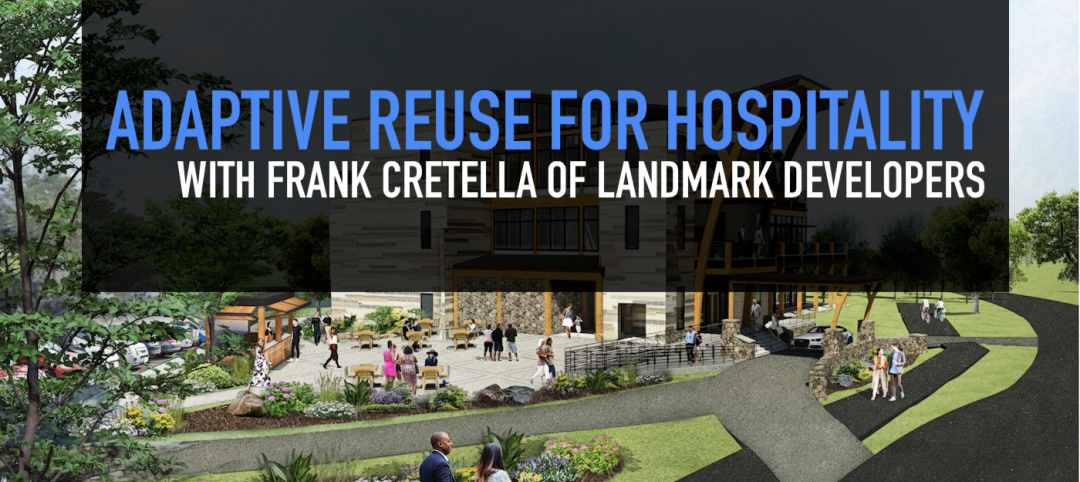The AIA Foundation, along with the American Institute of Architects (AIA) and the Association of Collegiate Schools of Architecture (ACSA), has announced the establishment of the AIA Design & Health Research Consortium to help fund basic research into the growing influence design has on public health.
The consortium will be comprised of like-minded university teams consisting of experts in architecture and public health. AIA Foundation and its partners will work with consortium members to identify and develop opportunities for funded research, publication, and other resources in design and public health, with the idea that coordination and collaboration will benefit the consortium, its partners and the design and health professions.
The AIA Foundation has set a deadline of October 15, at 11:59 pm PDT for receiving qualification proposals from interested academic institutions. Selection of the schools will be made by late November.
“In the last ten years, we have accepted that healthy places are sustainable places; that the optimal building of this century will be one that minimizes its ecological footprint while promoting human health and well-being,” said AIA Foundation Executive Director Sherry-Lea Bloodworth Botop. “This consortium will help lay the foundation for making this vision a reality.”
“Good design can improve our well-being, whether in our homes, schools, workplaces, or where we play,” said AIA CEO Robert Ivy, FAIA. “By careful consideration of the human condition and its surroundings, architectural design promotes well-being, mental health and performance.”
The launch of the consortium is the latest effort by the AIA Foundation and its partners to expand the growing body of research into the design and health nexus. In April, the AIA Foundation, AIA, and ACSA held a design and health-focused summit attended by more than 100 design and public health officials. In June, the AIA and McGraw-Hill Construction announced a ground-breaking survey on the attitudes of architects, public health officials and human resource professionals on whether design techniques can make a difference in improving the health of the American public.
The AIA has organized its design and health initiative around six evidence-based approaches that architects can influence through design practices and policies at the building and urban scale. These six approaches—environmental quality, natural systems, physical activity, safety, sensory environments, and social connectedness—recognize that the physical environment creates health opportunities and facilitates positive health behaviors. The AIA’s Design & Health Leadership Group (DHLG) has convened a research working group to manage the review of qualifications submitted by member candidates. Following an open request for qualifications, the working group will recommend up to ten members working across these six research areas.
Over a three year period, the AIA Foundation and its partners will provide institutional support and capacity building for inaugural consortium members to promote collaboration through local and national partnerships; enable the sharing of knowledge through private listserv activity, conference calls, and face-to-face events; and provide a new portal on AIA.org for Members to share research activity. Whenever appropriate, the AIA Foundation and its partners will promote the activities of the consortium with potential funders.
The full Request for Qualifications, application form, and other resources are available here.
Related Stories
Resiliency | Jun 24, 2021
Oceanographer John Englander talks resiliency and buildings [new on HorizonTV]
New on HorizonTV, oceanographer John Englander discusses his latest book, which warns that, regardless of resilience efforts, sea levels will rise by meters in the coming decades. Adaptation, he says, is the key to future building design and construction.
Multifamily Housing | Jun 23, 2021
COVID-19’s impact on multifamily amenities
Multifamily project teams had to scramble to accommodate the overwhelming demand for work-from-home spaces for adults and study spaces for children.
Architects | Jun 22, 2021
6 ways design can supercharge innovation in health sciences and medical education
It might sound radical, but the best way to achieve better collaboration is by eliminating traditional operational silos and the resulting departments.
K-12 Schools | Jun 20, 2021
Los Angeles County issues design guidelines for extending PreK-12 learning to the outdoors
The report covers everything from funding and site prep recommendations to whether large rocks can be used as seating.
Hotel Facilities | Jun 18, 2021
Adaptive reuse for hospitality, with Frank Cretella of Landmark Developers
In an exclusive interview for HorizonTV, Landmark Developers' President Frank Cretella talks about the firm's adaptive reuse projects for the hospitality sector. Cretella outlines his company's keys to success in hospitality development, including finding unique properties and creating memorable spaces.
Architects | Jun 16, 2021
BSB Design acquires California architectural firm Withee Malcolm
The acquisition marks a pivotal step in BSB Design’s long-term strategic plan.
Architects | Jun 15, 2021
Sandy Hook Permanent Memorial set to break ground
SWA Group designed the project.
Architects | Jun 15, 2021
Chicago Architecture Center and Chicago Architectural Club announce competition calling for new visions for State of Illinois “Thompson Center”
Competition seeks to give State of Illinois Center new life while preserving its architecture and public character.
Wood | Jun 10, 2021
Three AEC firms launch a mass timber product for quicker school construction
TimberQuest brand seeks to avoid overinvestment in production that has plagued other CLT providers.
Office Buildings | Jun 10, 2021
The future of the workplace is social clubs
Office design experts from NELSON Worldwide propose a new concept for the workplace, one that resembles the social clubs of the past.



![Oceanographer John Englander talks resiliency and buildings [new on HorizonTV] Oceanographer John Englander talks resiliency and buildings [new on HorizonTV]](/sites/default/files/styles/list_big/public/Oceanographer%20John%20Englander%20Talks%20Resiliency%20and%20Buildings%20YT%20new_0.jpg?itok=enJ1TWJ8)













